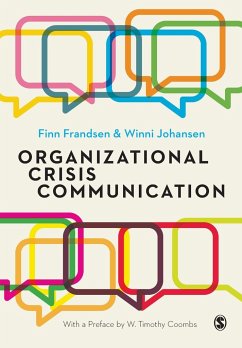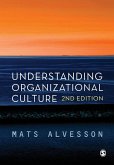When a crisis breaks out, it s not always just the organization that reacts - the news media, customers, employees, trade associations, politicians, activist groups, and PR experts may also respond.
This book offers a new and original perspective on crisis communication based on the theory of the Rhetorical Arena and the so-called multivocal approach. According to this approach, we gain a more dynamic and complex understanding of organizational crises if we focus not only on the communication produced by the organization but also take into account the many other voices who start communicating when a crisis breaks out.
It provides:
An in-depth overview of the five key dimensions of organizational crises, crisis management and crisis communication A comprehensive introduction to the theory of the Rhetorical Arena and the multivocal approach to crisis communication, including some of the most important voices inside the arena A series of important international case studies and case examples in each chapter.
Suitable for students studying crisis communication modules on corporate communication, public relations, and management and organization studies courses.
This book offers a new and original perspective on crisis communication based on the theory of the Rhetorical Arena and the so-called multivocal approach. According to this approach, we gain a more dynamic and complex understanding of organizational crises if we focus not only on the communication produced by the organization but also take into account the many other voices who start communicating when a crisis breaks out.
It provides:
An in-depth overview of the five key dimensions of organizational crises, crisis management and crisis communication A comprehensive introduction to the theory of the Rhetorical Arena and the multivocal approach to crisis communication, including some of the most important voices inside the arena A series of important international case studies and case examples in each chapter.
Suitable for students studying crisis communication modules on corporate communication, public relations, and management and organization studies courses.
Rich with case studies and practical examples, this book is a must read for anyone with an interest in this critical area of management. There is probably no better book and no better team of authors on the subject of crisis communication. Frandsen and Johansen walk the reader through different types of organizational crises, and present their own distinctive arena model of crisis communication that is adept to the current media landscape in which issues emerge and almost over night amplify into full-blown crises for many organizations. Read this book and you will be better able to identify and analyse organizational crises and figure out the right communication response. Joep Cornelissen 20160729








